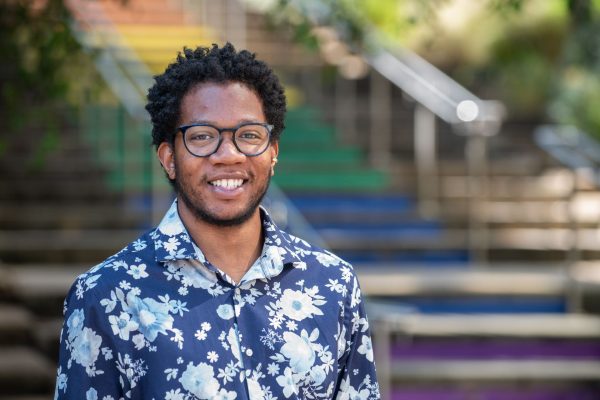
Dr Myles-Jay Linton demonstrates how early career research is supporting student mental health.
My work focuses on two primary areas: the mental health challenges faced by university students, and the outcomes of innovative mental health policies at the University of Bristol. In 2018, for example, the University launched an ‘opt-in policy’ which invites all students to give consent to the University to get in touch with an emergency contact if there is a serious concern about their welfare. The policy is the first of its kind in the UK and is designed to widen the circle of support for Bristol students. I work with students and staff to understand better how novel policies like this are interpreted and implemented. Approximately 95% of our students opt in, which is amazing, and we are working to understand who the remaining 5% are; without allowing us to reach out to a named emergency contact, they might be at higher risk.
We can’t do better if we don’t know what it’s like for students today. The University’s annual Student Wellbeing Survey, which I co-run, asks students directly: How are you feeling? What challenges do you face? What can the University do to help? We’ve carried out the survey throughout the pandemic so we have good data on students’ experiences before and during COVID-19 and we’ve already made some significant changes to student support in response to survey findings.
I’m also working with Professor Bruce Hood on the Science of Happiness undergraduate course, which explores strategies students can use to improve their wellbeing. My research uses data science methods to analyse weekly diary entries of enrolled students. Perhaps unsurprisingly, one of the most popular topics people write about is their social lives, which gives us an improving insight into what makes students tick. It was a career milestone to publish my findings in The Journal of Medical Internet Research this year and an amazing outcome of this fellowship.
By supporting early career researchers like myself, alumni and friends are helping academics make what is otherwise a very difficult transition from finishing their PhD to establishing a career in academia. This fellowship has given me the space not only to work on publications but also to develop new skills and expand my networks, allowing me to work holistically on my role as a researcher. It has also enabled me to apply for additional grants, which helps me take my research in different directions and bring in more collaborators. Since the pandemic, for example, my work has evolved to explore the opportunities and harms that technology poses to young people. Our lives have become so digital and we have to be mindful of the pros and cons.
I was drawn to researching young people’s mental health because of increases in levels of distress among young people, and growing pressures facing the next generation. When I was studying for my undergraduate degree I experienced my own mental health difficulties, so I’m familiar with what it’s like to feel unwell and out of place at university. I want to help ensure institutions are as well prepared as possible to support young people and make universities places where people can thrive.
Myles-Jay Linton is the Elizabeth Blackwell Institute Vice Chancellor’s Fellow in Young People’s Mental Health.
